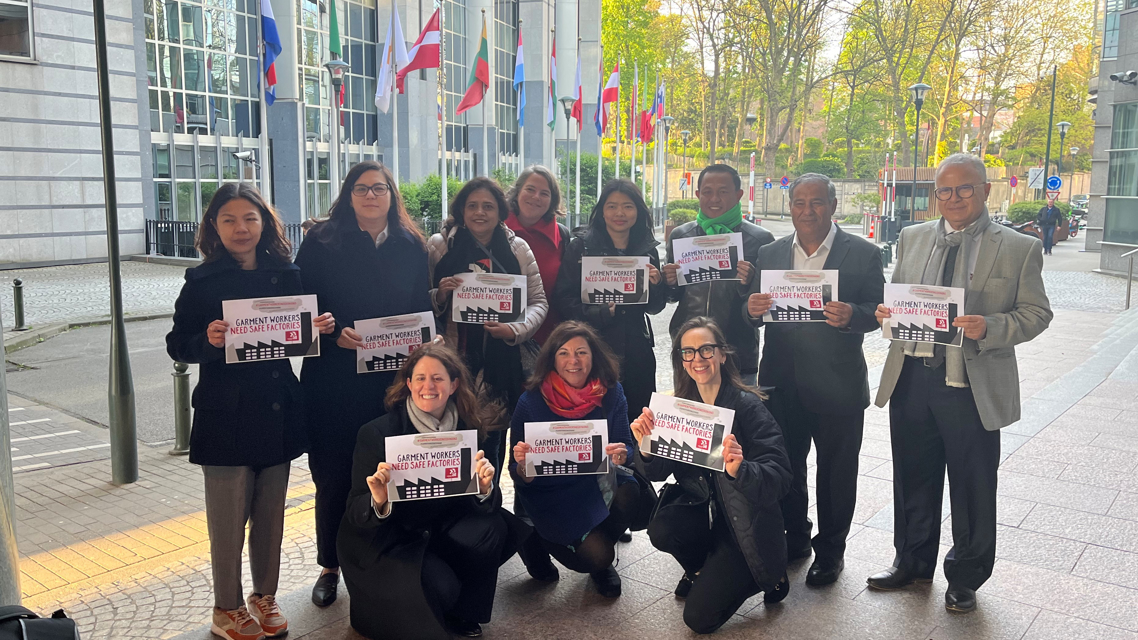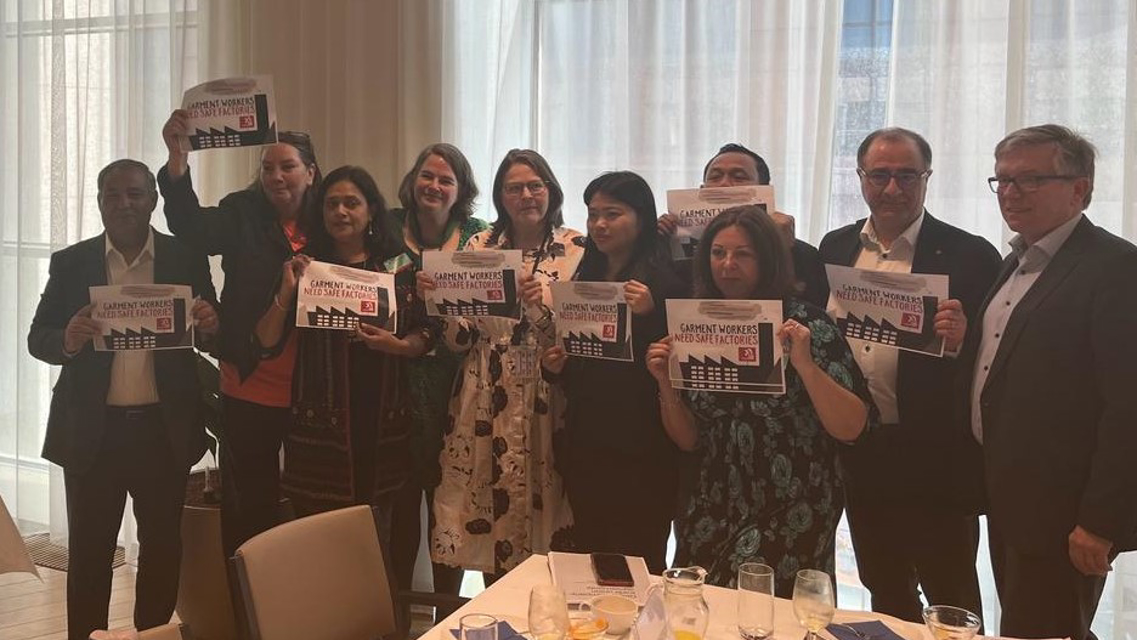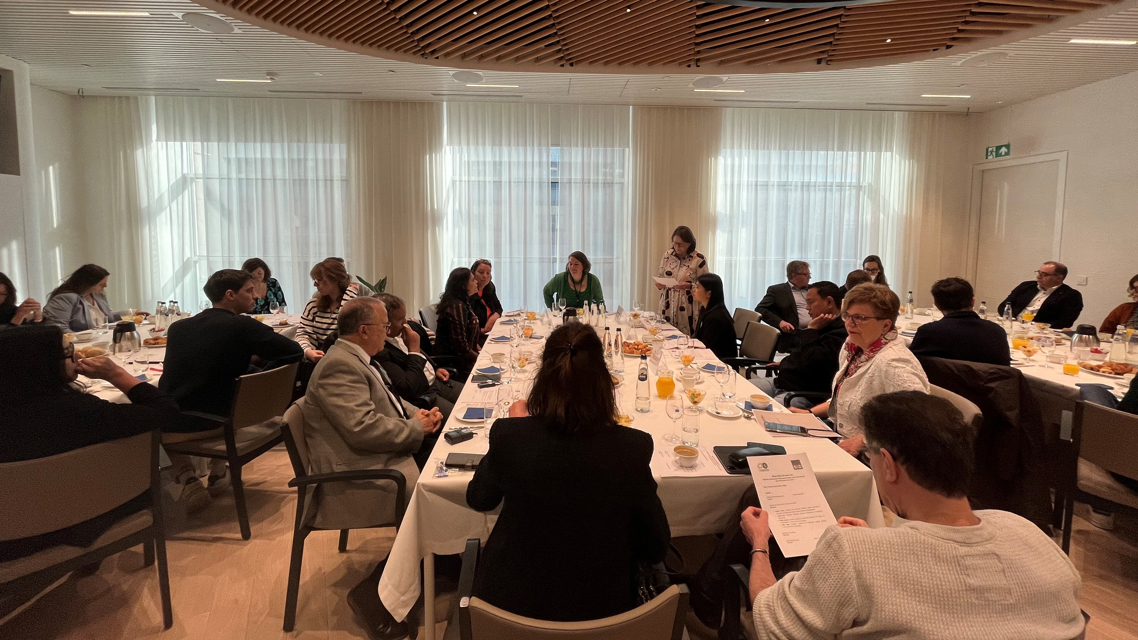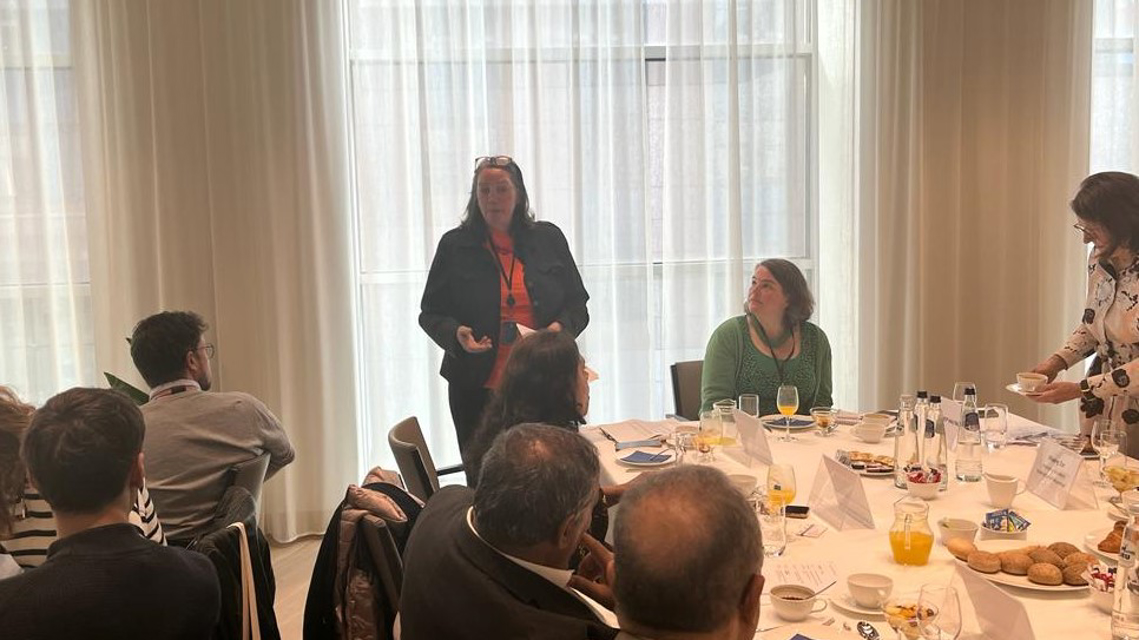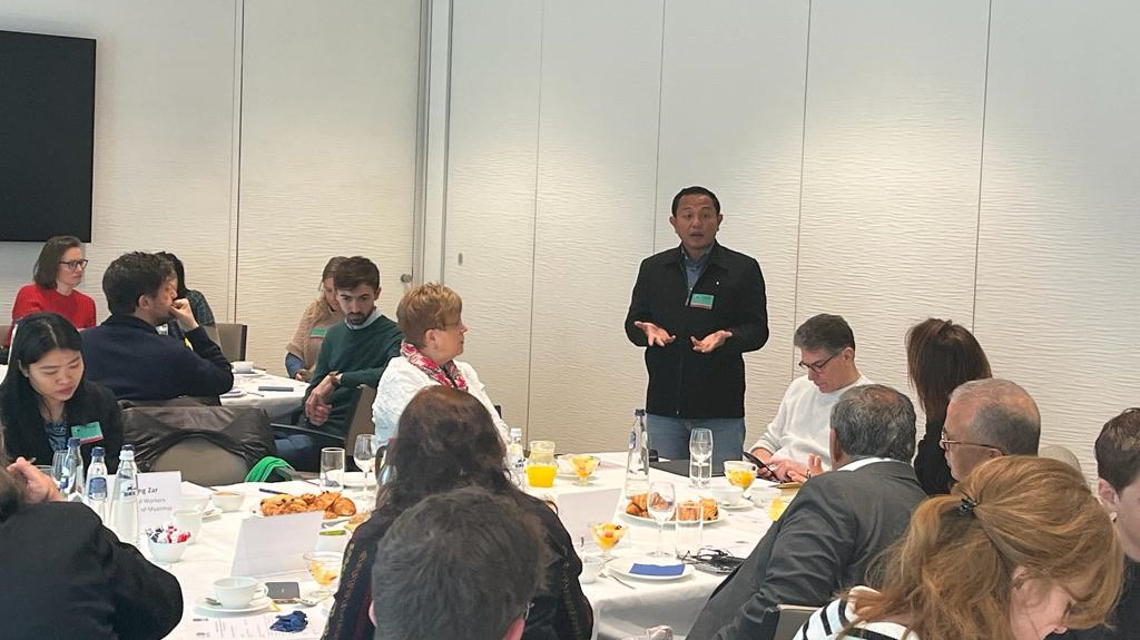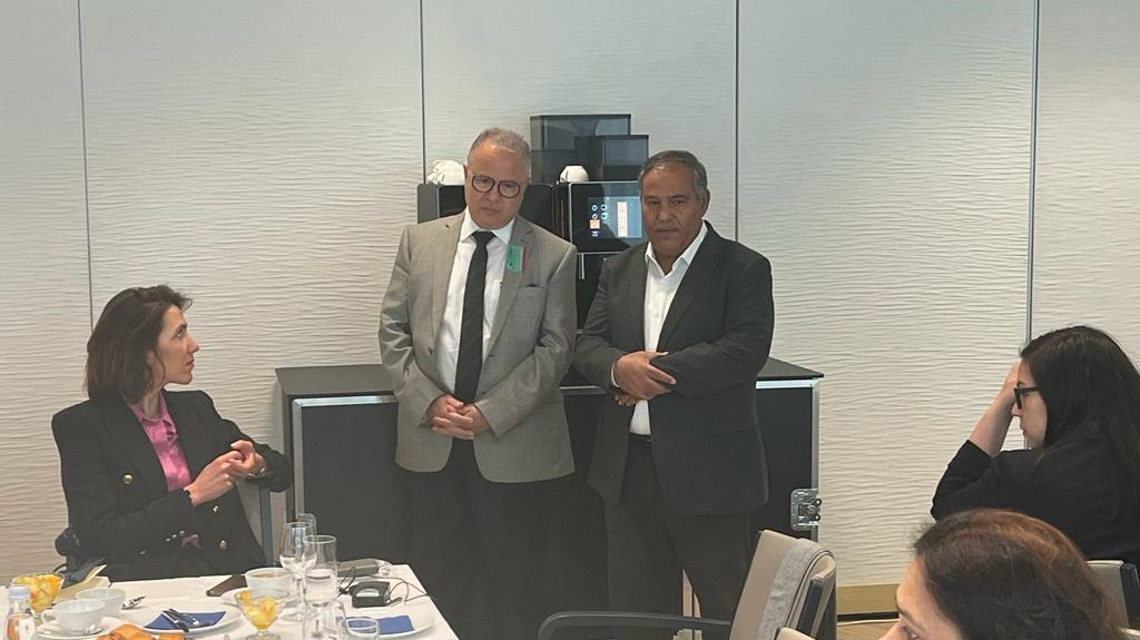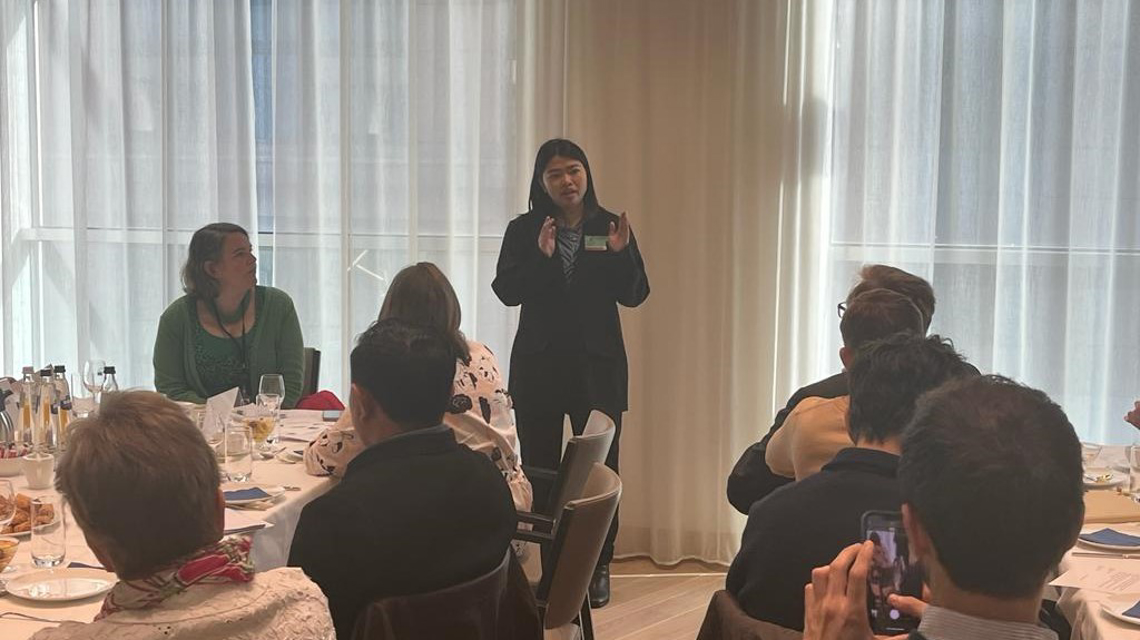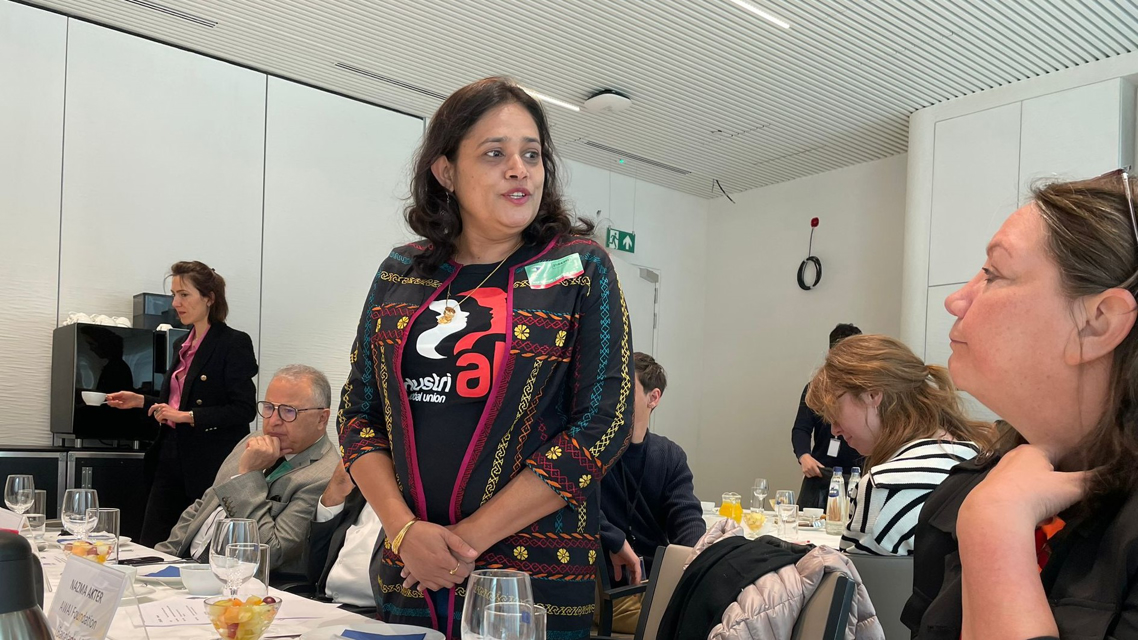“It is depressing that despite undeniable progress, we still hear harrowing stories of unsafe and precarious working conditions, poverty wages, child labour and forced labour. Europe certainly has a role to play to improve conditions for workers globally.
This International Workers’ Memorial Day, we pay special tribute to the victims of the Rana Plaza tragedy, where this week ten years ago, 1,132 workers died and more than 2,500 were injured when the eight-storey Rana Plaza factory building collapsed, burying the workers in the rubble.
Accompanied by IndustriALL Global Union and industriAll Europe, Nazma Akter, President of the Bangladesh Sommilito Garments Sramik Federation, Athit Kong, President of the Cambodian Apparel Workers’ Democratic Union, Habib Hazami, General Secretary of the Tunisian Textile, Clothing, Shoes and Leather Federation, and Khaing Zar Aung, President of the Industrial Workers Federation of Myanmar, attended a meeting hosted by MEPs Heidi Hautala and Agnes Jongerius on 27 April in the European Parliament.
The Brussels meeting was part of a European advocacy tour calling for mandatory due diligence in the sector and the need for safe factories, which also took the union leaders to the ILO in Geneva and a conference hosted by the German Federal Ministry for Economic Cooperation and Development in Berlin.
Athit Kong emphasised that the EU has leverage. Workers and their unions in garment producing countries are looking to the EU to pass strong mandatory due diligence legislation with access to effective remedies. Trade relations can be used to improve the situation of workers in production countries.
The union leaders came with three key demands that rely on European action and support:
- Mandatory due diligence legislation that includes access to legal redress
- European companies to offer ‘living wages’ throughout their global supply chains
- More brands to join the International Accord to improve workplace safety for garment workers
Khaing Zar Aung, told MEPs that the EU’s MADE in Myanmar project, while well intentioned to promote decent work, legitimises the military and provides a front for workers’ rights violations. Income from the project helps fund the military. The EU must stop it!
The Accord has made a huge difference to garment workers in Bangladesh by improving building and fire safety, but health and safety efforts must now also focus on occupational diseases, Nazma Akter stressed. She reiterated the need for all brands sourcing from Bangladesh to sign the International Accord.
Habib Hazami, IndustriALL Global co-chair of the textile and garment sector, also stressed the importance of the Accord and the need to extend it to the MENA region.
Christina Hajagos-Clausen, IndustriALL Global Director textile and garment industry said:
“Trade union voices from the production countries need to be heard and taken into account when it comes to the debate around the why mandatory due diligence is needed”
Judith Kirton-Darling, Deputy General Secretary of industriAll Europe said:
“It is depressing that despite undeniable progress, we still hear harrowing stories of unsafe and precarious working conditions, poverty wages, child labour and forced labour. Europe certainly has a role to play to improve conditions for workers globally. We need a jigsaw of measures at EU level, including mandatory due diligence and an EU textiles strategy that bans unfair trade practice.”
IndustriAll Europe and IndustriALL Global Union are committed to continuing their joint efforts to hold companies accountable throughout their value chains.
